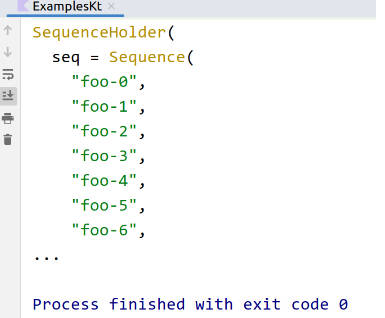What is KOIN?
A pragmatic lightweight dependency injection framework for Kotlin developers.
Written in pure Kotlin, using functional resolution only: no proxy, no code generation, no reflection.
Koin is a DSL, a light container and a pragmatic API
All documentation, sample and references has been move to our website. Check the official website to get started: insert-koin.io. Koin samples project are located here: koin-samples
You can check the getting started section from our website, to discover Koin with the favorite platform. Or follow the snippets below.
Contact & Support
Follow us on Twitter for latest news: @insertkoin_io
Need help? Come on slack Koin channel from Kotlin slack. Or just open an issue on Github issues to share your problem.
Setup
Actual Version
Gradle
Check that you have the jcenter repository.
Choose your the Koin module:
Quickstart
- Your first dependency with Android
- Your first dependency with Android and ViewModel
- Unit Testing with Koin
- The Koin DSL in 5 minutes
Getting Started
Your first dependency with Android
Gradle
Declaring our first dependencies
Let's create a Repository to provide some data (giveHello()):
A Presenter class, for consuming this data:
Use the applicationContext function to declare a module. Let's write our dependencies via constructor injection:
By using the factory definition for our presenter, we will obtain a new instance each time we ask about the MyPresenter class.
Start Koin
Now that we have a module, let's start it with Koin. Open your application class, or make one (don't forget to declare it in your manifest.xml). Just call the startKoin() function:
Injecting dependencies
The MyPresenter component will be created with Repository instance. To get it from our Activity, let's inject it with the by inject() delegate injector (we can't directly create Activitiy instances from Koin):
Your first dependency with Android ViewModel
Gradle
Declaring our first dependencies
Let's create a Repository to provide some data (giveHello()):
A ViewModel class, for consuming this data:
Use the applicationContext function to declare a module. Let's write our dependencies via constructor injection:
We are also using the viewModel keyword to declare an Android ViewModel component.
Start Koin
Now that we have a module, let's start it with Koin. Open your application class, or make one (don't forget to declare it in your manifest.xml). Just call the startKoin() function:
Injecting dependencies
The MyViewModel component will be created with Repository instance. To get it from our Activity, let's inject it with the by viewModel() delegate injector (we can't directly create Activitiy instances from Koin):
Or if you want to eagerly create your ViewModel in a function, just use the getViewModel():
Unit Testing with Koin
Gradle Setup
First, add the Koin dependency like below:
Declared dependencies
Let's create a Repository to provide some data (giveHello()):
A Presenter class, for consuming this data:
Use the applicationContext function to declare a module. Let's declare our first component:
Writing our first Test
To make our first test, let's write a simple Junit test file and extend it with KoinTest. We will be able then, to use by inject() operators.
The KOIN DSL in 5 minutes
Keywords
A quick recap of the Koin DSL keywords:
applicationContext- create a Koin Modulefactory- provide a factory bean definitionbean- provide a bean definitionbind- additional Kotlin type binding for given bean definitionget- resolve a component dependencygetProperty- resolve a propertycontext- declare a logical context
Special keywords:
viewModel- declare an Android ViewModel (koin-android-architecture only)controller- declare a SparkJava controller (koin-spark only)
Deprecated: provide has been deprecated in favor to aliases. bean ~ provide and factory ~ provide(isSingleton=false)
Writing a module
Here below the Koin DSL keywords you need to know, to write your module. To declare a module, use the applicationContext function:
The applicationContext lambda function is where you will write your definitions. myModule is the Koin module
To define your components, use the following keywords:
bean- define a singleton (create only one instance)factory- define a factory (create a new instance each time)
Deprecated: provide keyword is now deprecated. Please use bean or factory
Below a simple definition of a MyRepository singleton:
Binding interfaces or several types
To bind a component with its interface, we have 2 solutions. Given an interface and its implmentation:
We can write it:
bean { MyRepositoryImpl() as MyRepository }- will create an instance of typeMyRepositorybean { MyRepositoryImpl() } bind MyRepository::class- will create an instance of typeMyRepositoryImpland will accept to bind on typeMyRepository
*You can use the bind keyword with a class several times: bind Class1::class bind Class2::class
Multiple definitions of the same type
If you have mulitple definitions of the same type, Koin can't guess which instance to use. Then, you have to name each instance to clearly specify which instance to use. bean and factory have the name parameter (default parameter).
we will write our module like:
Resolving a dependency
Koin push you to use constructor injection to bind your component. Given classes:
We wil use the get() function to resolve a dependency:
Using multiple modules / Module import
Every definition and module is lazy be default in Koin. This means that you can assemble several modules, by using the list of desired modules. Given some classes:
And the two modules to declare it:
Just start the module list together:




